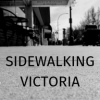
Managing density / urban development
#41

Posted 28 November 2007 - 07:55 AM
More power to the associations might therefore amplify the problems with process & democracy (alienation from politics, disenfranchisement, etc.) that we already have. Although perhaps it would make silliness & incompetence & bias so obvious & transparent that more sane people would feel galvanized into action and step into leadership roles. But I doubt it. I think overall I prefer a democratic process where the people who get elected to positions of executive powers also get paid (and well enough, not at the level of current city councilors), so that they can dedicate themselves to the job full time. I'm really quite frustrated with having dabblers try to run things.
#42

Posted 28 November 2007 - 02:40 PM
#43

Posted 28 November 2007 - 03:02 PM
Take for example the last neighbourhood meeting I attended where a small cluster of wealthy housewives were advocating on behalf of the community that in the core of their neighbourhood density be kept at single family, at the expense of public access, and heritage trees. Without exception these ladies claimed that with their words "the community has spoken"... ignoring entirely the opposing voices from the younger and less wealthy residents. One woman even said "I don't see how density in the core can help prevent global warming", followed by a smattering of clapping and titters from the peanut gallery.
Or take the Cook Street fiasco where after fighting the developer (who I actually agree was acting like a bully) the ringleaders of the neighbourhood associations rolled over and agreed to the development but only after the low income segment of it was removed.
Neighbourhood associations are not accountable enough, not representative enough, and frequently act to keep poorer people out of their neighbourhoods. Perhaps this is why in the USA where restrictive covenants, gated communities, and security cameras are all becoming more and more common, these associations are becoming more powerful.
The idea of a neighbourhood association is a good one - to give people in a neighbourhood some voice, and some self determination. Where they fail is when you give them too much control, allowing those with leisure time to hijack the agenda while claiming to represent everyone within a geographical radius (many of who probably have no idea who these people are). I think of it like with important medical decisions... you may want the family of the person who is ill to guide your choice on if there should be surgery or not. But you certainly do not want those family members in the operating room making the cut. And you definitely do not want the family members overruling the patient's own wishes. Today's version of neighbourhood associations does both. And it is scary.
If I would return power to anyone it would be to City Planners.
#44

Posted 28 November 2007 - 03:14 PM
-City of Victoria website, 2009
#45

Posted 28 November 2007 - 03:47 PM
Caramia I couldn't have said it better than you.
#46

Posted 28 November 2007 - 06:05 PM
Also, exclusion doesn't work only for the rich. Poorer communities that have been able to acquire ownership of their streets have been able to exclude non-residents, which has kept out gangs and drug dealers. Local control would help the poor even more than it would the rich.
#47

Posted 28 November 2007 - 06:50 PM
#48

Posted 28 November 2007 - 08:20 PM
I don't want a neighbourhood that is exclusive no matter what the income level of residents. This one of the contributing factors to making surburban development so car oriented as there is no possibility for mixed uses. Unless of course the whole town is private like Celebration *ick*
#49

Posted 28 November 2007 - 09:11 PM
The letter had an info page stapled to it written by the land use committee chair of the hood so it was affiliated with the community association. There was nothing wrong with the info page, but another page (the first) had an ode to fearmongerers and even described my neighbourhood as a "village" that needed to be saved from a pending development. A community association willingly subscribing to fear and disinformation? Could it be that the community association doesn't represent the community it is apparently meant to represent? That's certainly the case in this situation. Resident associations can be extremely strong, lopsided forces that can work against the silent majority's true wishes.
I plan on having this document with me to show planners at an upcoming meeting just how irresponsible this community association is by choosing the method of disseminating information to residents that it currently (and perhaps often) does.
#50

Posted 28 November 2007 - 09:31 PM
Gated communities. The antithesis of everything that is good about living in a city. No thanks.
I know. They're not everyone's cup of tea. But if a community wants private governance, they should be allowed it. And if they want to gate their community, they should be allowed that as well. If those in existing communities want to enjoy the benefits that strata developments enjoy, it's not fair to exclude them.
#51

Posted 28 November 2007 - 09:51 PM
#52

Posted 28 November 2007 - 10:05 PM
I personally like to walk down streets I don't live on. You know participating in society, being human.
I think most communities would welcome you, just as most stratas do. But if a community wishes to take ownership of itself, and exclude those it wishes to exclude, that should take precedent over the desires of outsiders. There's nothing inhuman or antisocial about wanting to keep out strangers. That's why cul-de-sacs are so popular.
I don't want a neighbourhood that is exclusive no matter what the income level of residents.
That decision is rightfully made by the residents of the community.
This one of the contributing factors to making surburban development so car oriented as there is no possibility for mixed uses.
Private communities usually have fewer entrances and exits. It's likely that if a neighbourhood took ownership of itself, one of the first things it would do is block off some of its streets, preventing drivers from using neighbourhood streets as shortcuts. You might find that appealing. As to mixed uses, private communities could easily allow commercial activity in their neighbourhood, if they felt the community would benefit. In fact, a vendor could purchase, from the community, the right to operate . If they tried that with public government, they would be guilty of bribery. If you open yourself to the idea, I think you will find private government offers a lot of what you would like to see.
#53

Posted 28 November 2007 - 10:12 PM
Communities can gate themselves off all they want but they better have enough money to pay for infrastructure improvements and maintenance. No taxpayer that I know would willingly support a community's plight to gate itself off from everyone else but rely on everyone else to keep their gates painted and blacktop even.
Exactly right. Just as newly constructed strata developments do, existing neighbourhoods that convert to private government would bear the costs and enjoy the benefits of their own decisions.
#54

Posted 28 November 2007 - 10:43 PM
.
.
-City of Victoria website, 2009
#55

Posted 28 November 2007 - 10:44 PM
#56

Posted 29 November 2007 - 09:26 AM
The problem with that kind of thinking is how it leads to increased polarization and inequity in society at large - something familiar to the USA. It allows race relations to break down further, and it effectively externalizes any normal social costs onto the diminished public sphere. A fancy gated family in their nice gated community has a teenager running wild - not behind the gates, but out there in the "public ghetto." Their uncle Barney develops a drinking problem and leaves his wife with her 4 kids... and presto, they are no longer welcome. Where do they end up? Wife and kids in low income housing elsewhere. Uncle Barney cluttering the streets of downtown. Gated college students want to party, where do they go? The bar scene is certainly not allowed in gated land, hell even a neighbourhood pub will create a stink (see The Beagle - S. Fairfield) - so they go downtown, party it up, piss and puke on the streets in front of downtown residents homes, and then go to gated land and complain about the shocking condition of downtown and how they didn't feel safe. No **** shurlok - because when the public sphere is so diminished that it becomes a ghetto in itself, everyone suffers.
However Davek, one thing I do find very interesting about your point is how you extended empowered neighbourhood associations to their logical end: community strata councils run by property owners. Now whether you think the idea is a nightmare, as I do, or a good thing, as you do, the connection between the two was a really good point. And actually it helped me understand more what I don't like about neighbourhood associations in their current Victoria incarnation. It is where those similarities crop up that makes me recoil.
#57

Posted 29 November 2007 - 10:36 AM
PS: Where's the thumbs-up smiley? Can't find it -- you get this one instead:
#58

Posted 29 November 2007 - 11:13 AM
Could it be that the community association doesn't represent the community it is apparently meant to represent? ...Resident associations can be extremely strong, lopsided forces that can work against the silent majority's true wishes.
That brings to mind the street closures in the Jubilee area.
#59

Posted 29 November 2007 - 11:47 AM
That brings to mind the street closures in the Jubilee area.
I'm not sure about all the closures you are referring to. But speaking as a cyclist who uses it 4 times a week, I am pretty strongly in favour of the Haultain "closure".
In any case, I've not seen any gates near the Jubilee. I think managing traffic flow is a different issue from limiting access of a neighbourhood to certain undesirables (unless we want to call commuters "undesirables"). The first I am willing to discuss, the second I find repugnant.
#60

Posted 01 December 2007 - 10:44 AM
Allowed to exclude who they wanted? How far does that go? Allowed to exclude people with tattoos? Lower income? Single mothers? Blacks? Asians?
Many privately governed neighborhoods do not exclude anyone, and the ones that do don’t do so on any of the criteria above. Rather, much like an apartment complex with a buzzer and intercom at the entrance, they seek to exclude those who have no resident to vouch for them.
The problem with that kind of thinking is... when the public sphere is so diminished that it becomes a ghetto in itself, everyone suffers.
There is no reason to expect the public sphere would be diminished in any meaningful way. Those who lived in privately governed communities would still be taxed to support the public domain, just as those who live in condos and townhouse stratas do now.
Now whether you think the idea is a nightmare, as I do, or a good thing, as you do, the connection between the two was a really good point.
Thank you. As to whether or not private governance would be a nightmare, well, there's no need to theorize. Private neighborhoods are a reality, and an increasingly popular one, despite the horror stories one hears about dysfunctional strata councils. The increasing growth in privately governed neighborhoods indicates that there are many consumers who feel that they benefit from living in those communities. Currently, those who can't afford to purchase in newer developments are excluded from those benefits. A legal mechanism needs to be developed so that those who live in established neighborhoods could take advantage of those perceived benefits, if they so desired.
Use the page links at the lower-left to go to the next page to read additional posts.
0 user(s) are reading this topic
0 members, 0 guests, 0 anonymous users














